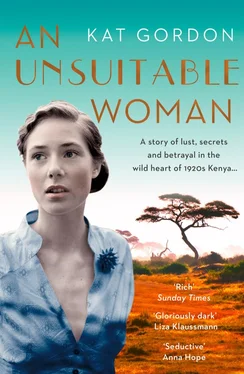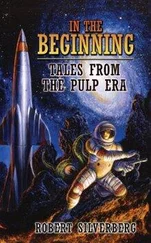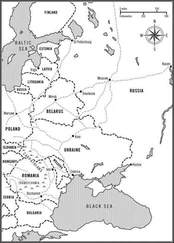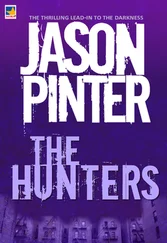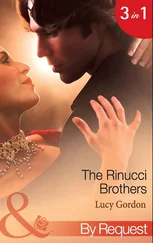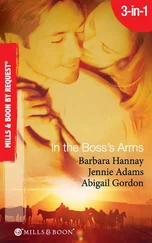‘I’ll be running out of blue soon,’ she always said, as she was choosing a colour for the sky. ‘Blue and brown, those are the colours I use most out here.’
‘What colours did you use most in Scotland?’ Maud asked once.
‘Green and grey.’
‘Did you ever go anywhere else? What colours are other countries?’
‘No, not me,’ Miss Graham said. She dipped her brush into the pot of cobalt. ‘But the family I was with before were in India for a while.’
‘What colour is India?’
‘Gold. And orange.’
‘What about America?’ I asked.
‘I don’t know America,’ she said brusquely.
Two of the totos appeared with the laundry, laughing and whooping. They were younger than me, probably no more than twelve, and my mother must have ordered their kanzus in the wrong size because they were both tripping over their hems. One of them carried the washtub, the rub board and soap banging against its sides as he walked. The other carried a pile of clothes and bedding that was higher than him. When the first toto saw Miss Graham he stopped, and the second crashed into him, dropping most of my father’s shirts.
Miss Graham rapped her easel with the handle of her paintbrush; it made a sound like a gun-crack, and the first toto flinched. ‘Shall I tell Bwana Miller that you throw his clothes on the ground?’
The totos mumbled something.
‘It doesn’t matter,’ I said. ‘They’re dirty anyway.’
‘You have to instil discipline,’ Miss Graham said. ‘The natives are awfully lazy.’ She turned back to them and made a flapping motion with her free hand. ‘ Pesi pesi .’
We’d been out in Africa long enough to know that meant ‘get on with it’.
The totos crept past us and sat on the jetty, whispering to each other as they washed our laundry. Maud watched them with a confused look on her face. After a while I went back inside.
If the totos were afraid of Miss Graham, they were even more afraid of my mother. A few times I’d been in the kitchen with them, bothering the cook, when someone had muttered ‘Bibi Miller’, and everyone had melted away.
Joseph, the cook, was the only person who didn’t seem intimidated by her temper. He was a good-natured old man whose fingers were covered in calluses. Once I saw him use his bare hands to take a hot cast-iron dish from the oven and realised where the calluses came from. Two months after we moved in, when my voice began to change, becoming cracked and hoarse, Joseph made me a special hot drink that tasted bitter and grainy.
‘You a man now, Bwana,’ he said. ‘This drink make you into a good husband.’
Joseph could cook anything, but he loved schnitzel and potatoes, which drove my father to despair. For my fifteenth birthday, Joseph made me apple strudel with ice-cream. The pastry was light and flaky, the apples were soft and tasted of burnt sugar and cinnamon. It was the best cake I’d ever had.
After a while my mother had a word with Joseph and he grudgingly started cooking food we were more used to. He could cook anything: meringues, custard flans, layer cake, soups, breads, scones, pies. It had felt strange sitting down to schnitzel and potatoes in the middle of Africa, but no stranger than kidney pie and rice pudding.
Abdullah, the head boy, was gentle in everything. He had big brown eyes and a slight stammer that made him shy to speak. Every evening he put down a prayer mat on the grass and prayed for exactly seven minutes. Unlike the other servants who were all Kikuyus, Ramsay told us, head boys were normally Somalis because they were nobler and stricter. My father liked Abdullah a lot, because he approved of my father’s beard that he was trying to grow. My mother liked him because he was a genius at running the house, and Maud liked him because he helped her nurse injured birds she found in the garden. When Miss Graham was on leave, it was Abdullah who looked after us. Soon after we moved in, Maud fell out of a tree we were exploring, and ended up with a small gash on her shin. Abdullah washed the wound, then left us sitting by the well while he hunted through the grass near the woods.
‘What’s he looking for?’ Maud asked.
‘I don’t know,’ I said. ‘How’s your leg?’
‘Bleeding.’
‘Do you think you’ll bleed to death?’
‘Don’t – you’re not funny.’
Abdullah made his way back to us with something in between his thumb and forefinger. ‘This is for you,’ he said, as he reached the well.
‘What is it?’ Maud asked.
‘Safari ant.’ He showed us the ant, which was squirming in his grip. It was a deep cherry-red colour, and almost twice the size of his thumbnail, with long, pincer-like jaws protruding from either side of its head.
‘What are you going to do with it?’ Maud asked, biting her lip.
‘Maasai use them like this,’ Abdullah said. He brought the ant down to Maud’s cut, until the pincers were on either side of the wound then pressed them onto her skin. The ant went rigid, the pincers snapped together and Abdullah twisted the body off in a quick, clean movement. ‘Very strong,’ he said.
We looked down – the head was still hanging off Maud’s leg, but the pincers had closed the gash like a makeshift suture.
‘How long does it last?’ I asked.
‘Until skin heals,’ he said.
‘Thank you, Abdullah,’ Maud said. She blushed as he helped her to her feet.
It was April, almost three months after we’d moved in, when Sylvie arrived out of the blue. I was out on the lake with Maud when I saw her sitting on our jetty, legs outstretched in the sun. She raised a hand lazily and I jumped up, almost sending us head first into the water.
‘Who is it?’ Maud asked.
‘Sylvie.’
‘You must have good eyesight.’
‘Maybe it’s because I don’t strain them reading all the time,’ I said, beginning to row us back to shore.
‘I didn’t know you could read?’
‘Very funny.’ I caught sight of a monkey-sized figure scampering between Sylvie and the edge of the jetty. ‘Look – she’s brought your husband with her.’
Sylvie waited until the boat had bumped gently against the jetty before standing up in one slow, supple movement.
‘Is it nice out there?’ she asked. ‘It looks so peaceful.’
‘Do you want me to row you out?’
‘Another time.’ She was looking straight at me, and I passed a hand over my face, feeling the roughness of new hair growing around my mouth and below my ears. I was glad my voice had finally settled.
‘I came to invite you to see our new house,’ she said. ‘Well – our land, anyway. The house isn’t completely built yet.’
I moored the boat and jumped up onto the landing stage. ‘Is it nearly done?’
‘So the builder promises us.’
I stared at her perfect teeth and those soft-looking lips. She stared back, smiling.
‘ Theo ,’ Maud called from the boat. ‘You know I need help.’
Sylvie laughed. Maud held out her hands and I lifted her onto the jetty. Roderigo jumped into Sylvie’s arms and she kissed his head. ‘Shall we find your mother?’ she asked us.
‘Lady Joan came to see her for lunch,’ Maud said. ‘They’re out on the porch now.’
‘The Governor’s wife?’ Sylvie peered back at the house. ‘That’s lucky – I haven’t met her yet.’
I wondered if I should warn her about Lady Joan’s opinion of the Happy Valley set, but she’d already started walking, Maud trotting next to her. I hurried to join them.
When we reached the house a greyhound was shivering in the sunlight at the bottom of the stairs, and Abdullah was standing nearby, like a protective parent.
‘Thank you for looking after Fairyfeet,’ Sylvie said softly to him. She crouched down and stroked the dog’s ears, shushing it when it whimpered. ‘She’s so scared all the time – Nico’s almost given up on her.’
Читать дальше
